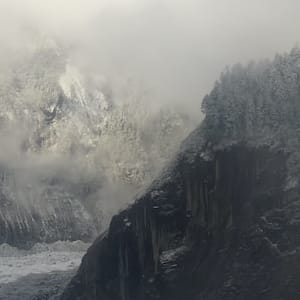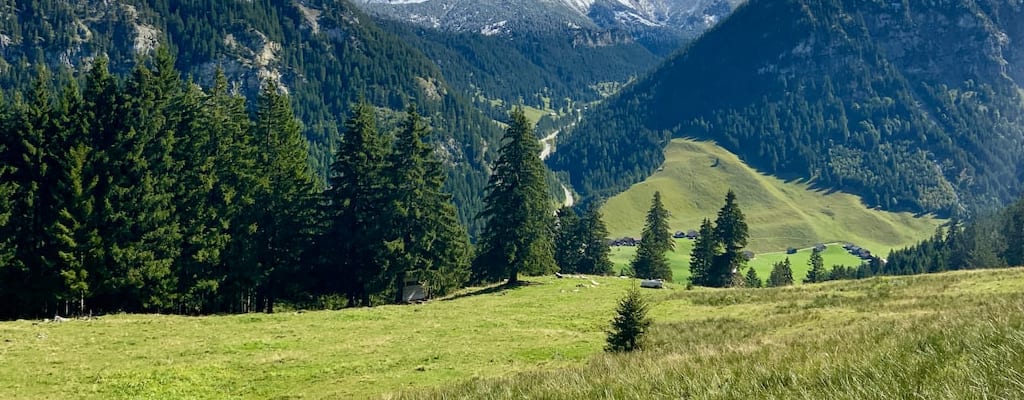snow on the mountaintop: Idiom Meaning and Origin
What does ‘snow on the mountaintop’ mean?
The idiom "snow on the mountaintop" is used to metaphorically describe someone who appears to be youthful or energetic despite their age. It suggests that although they may have aged on the outside, they still possess a youthful spirit or vitality.

Idiom Explorer
An idiom meaning an unrealistic or unattainable desire/expectation, often used to convey someone wanting something that is impossible to obtain.
According to my extensive research and knowledge about idioms, I have gathered several facts regarding the idiom "the moon on a stick." Here are the key facts:
An idiom used to emphasize the extreme or exceptional quality of someone or something.
The idiom "that ever walked on two legs" is a colloquial expression used in American English. This idiom emphasizes the exceptional qualities or characteristics of someone or something. It is often used in a hyperbolic manner to convey a sense of awe, admiration, or astonishment.
The idiom "tall in the saddle" means being in a position of power, confidence, or authority. It refers to someone who is self-assured and in control, especially in challenging or difficult situations.
The idiom "take to the hills" means to flee or escape from a dangerous or difficult situation by moving to higher ground or more remote areas.
The idiom "sweet young thing" refers to a young person, usually a woman, who is considered attractive, innocent, and appealing due to their youthfulness.
The idiom "sweep someone off their feet" means to completely charm or impress someone, often leading them to quickly form an intense romantic attraction or emotional connection.
The idiom "stink on ice" means something that is extremely unpleasant or undesirable. It suggests a strong, offensive odor and emphasizes the negative quality of the situation or thing being described.
The idiom "stick in the mud" refers to a person who is resistant to change or new ideas. They prefer to stick to traditional or outdated ways of doing things, often hindering progress or innovation.
The idiom "stepping stone" refers to something or someone that helps you progress or advance towards a goal or a higher position.
The idiom "stepping stone" has several facts associated with its meaning and origins.
This idiom means to begin with a fresh start or a new approach, without any preconceived notions or biases from the past.
Mystical Revelation
A snow-covered mountain peak is a serene and majestic sight to behold. It represents a pristine beauty as the white snow glistens against the backdrop of the sky.
However, when used figuratively in the idiom "snow on the mountaintop," its meaning deviates from its literal interpretation.
The idiom "snow on the mountaintop" is a vivid expression used to describe a physical trait in a person, particularly an older individual, where their hair has turned gray or white while the rest of their appearance remains youthful.
This idiom metaphorically equates the white hair to snow resting atop a mountain, highlighting the contrast between the snowy peak and the surrounding landscape.
In the case of the idiom "snow on the mountaintop," it suggests a person who possesses wisdom and maturity beyond their years, often described as having an "old head on young shoulders."
This phrase emphasizes the idea that the individual, despite their youthful appearance, carries themselves with the wisdom and insight typically associated with someone much older.
Similarly, the idiom "over the hill" can be connected to the concept of "snow on the mountaintop."
While "over the hill" traditionally refers to someone who has reached middle age or beyond, it shares a common theme with the idiom being discussed.
The idiom "snow on the mountaintop" suggests that aging individuals still have value and wisdom to offer, even though society may view them as "over the hill."
On the other hand, the idiom "on the rise" presents a contrasting viewpoint.
Unlike "snow on the mountaintop," which signifies the accumulation of wisdom and experience over time, "on the rise" suggests a person who is experiencing growth and success in their youth.
Both idioms explore different aspects of human life, with "snow on the mountaintop" focusing on the value of aging and "on the rise" highlighting the potential of youth.
While the origins of the idiom "snow on the mountaintop" are unclear, it is believed to have emerged in Western culture during the 20th century.
The association between graying or white hair and the visual similarity to snow-covered mountain peaks likely inspired the creation of this expressive phrase.
Though "snow on the mountaintop" is primarily used to describe physical aging, it can also convey wisdom, experience, and maturity.
Just as an aged person with snow-white hair may possess a depth of knowledge and insight, the idiom implies that these individuals have accumulated wisdom throughout their years.
Their gray or white locks symbolize the accumulation of life experiences, akin to the layers of snow that gradually accumulate on a mountaintop over time.
This idiom holds significance in American culture where youth and physical beauty are often highly valued.
The idea of "snow on the mountaintop" challenges these societal norms and reminds us that appearances can deceive.
It encourages us to appreciate the wisdom and experience that comes with age and not to dismiss or underestimate individuals based solely on their physical appearance.
Furthermore, "snow on the mountaintop" serves as a reminder that the passage of time affects everyone, regardless of their physical or intellectual abilities.
It suggests that no one is immune to the effects of aging and that we should approach the topic of aging with empathy and understanding.
While the idiom "snow on the mountaintop" predominantly refers to the physical manifestation of aging, it also prompts us to reflect on the broader themes of wisdom, experience, and the passage of time.
The imagery of a snow-covered mountain peak elicits a sense of beauty, serenity, and the mysteries contained in both the natural world and within ourselves.
In exploring the deeper meaning behind this idiom, one cannot help but marvel at the complexity and richness of human language.
The metaphorical power of idioms, such as "snow on the mountaintop," allows us to communicate abstract concepts in ways that resonate deeply with our shared cultural experiences.
While this analysis sheds light on the specific nuances of this idiom, it also unveils the limitless possibilities awaiting further exploration in the vast realm of idiomatic expressions.
Example usage
Examples of using the idiom snow on the mountaintop in a sentence:
- She may be getting older, but there's still snow on the mountaintop when it comes to her energy and enthusiasm.
- Despite his age, the professor's intellect and knowledge have snow on the mountaintop.
- The veteran athlete proved that there's snow on the mountaintop by winning the marathon race at the age of 55.
More "Winter" idioms

